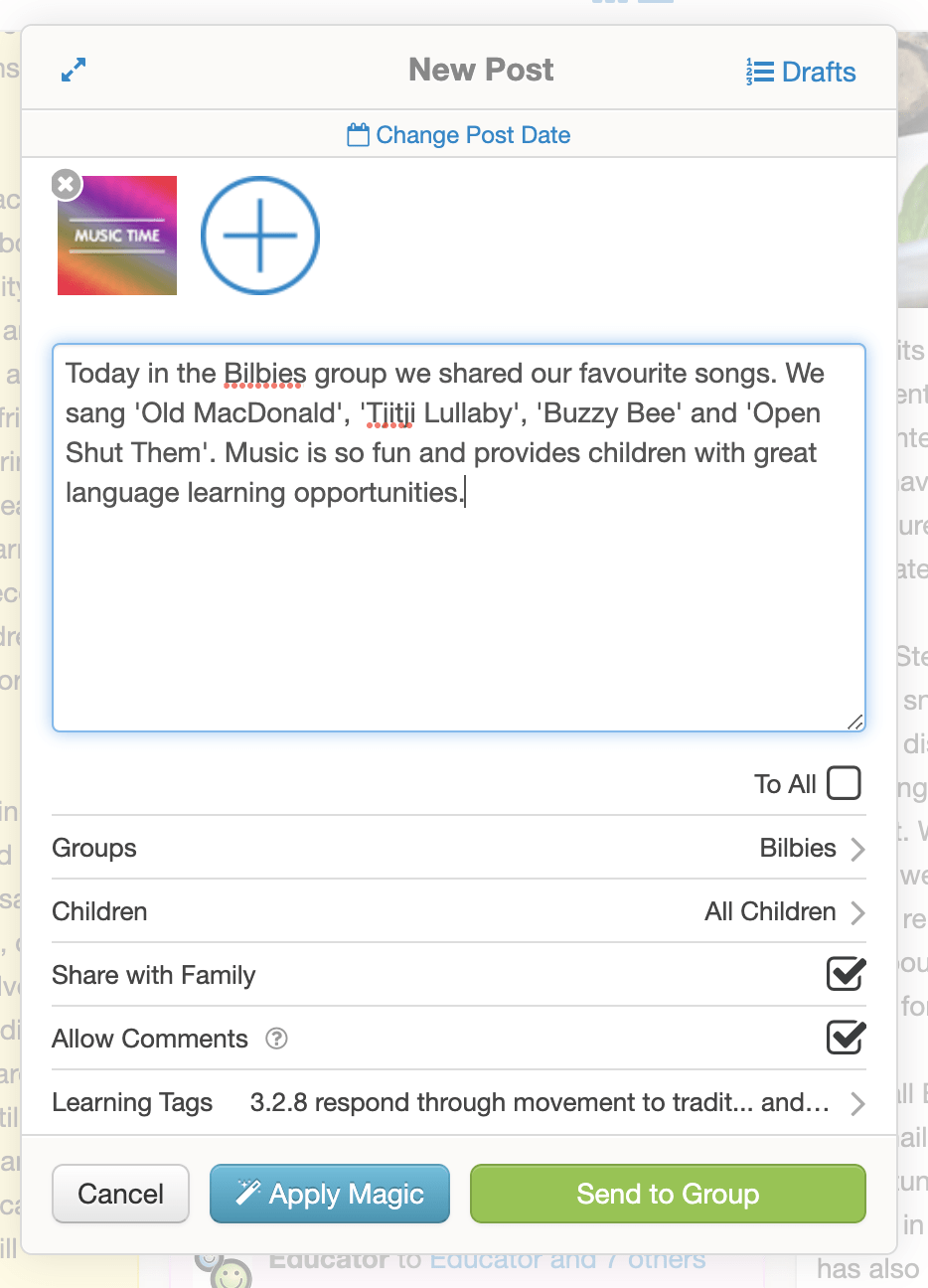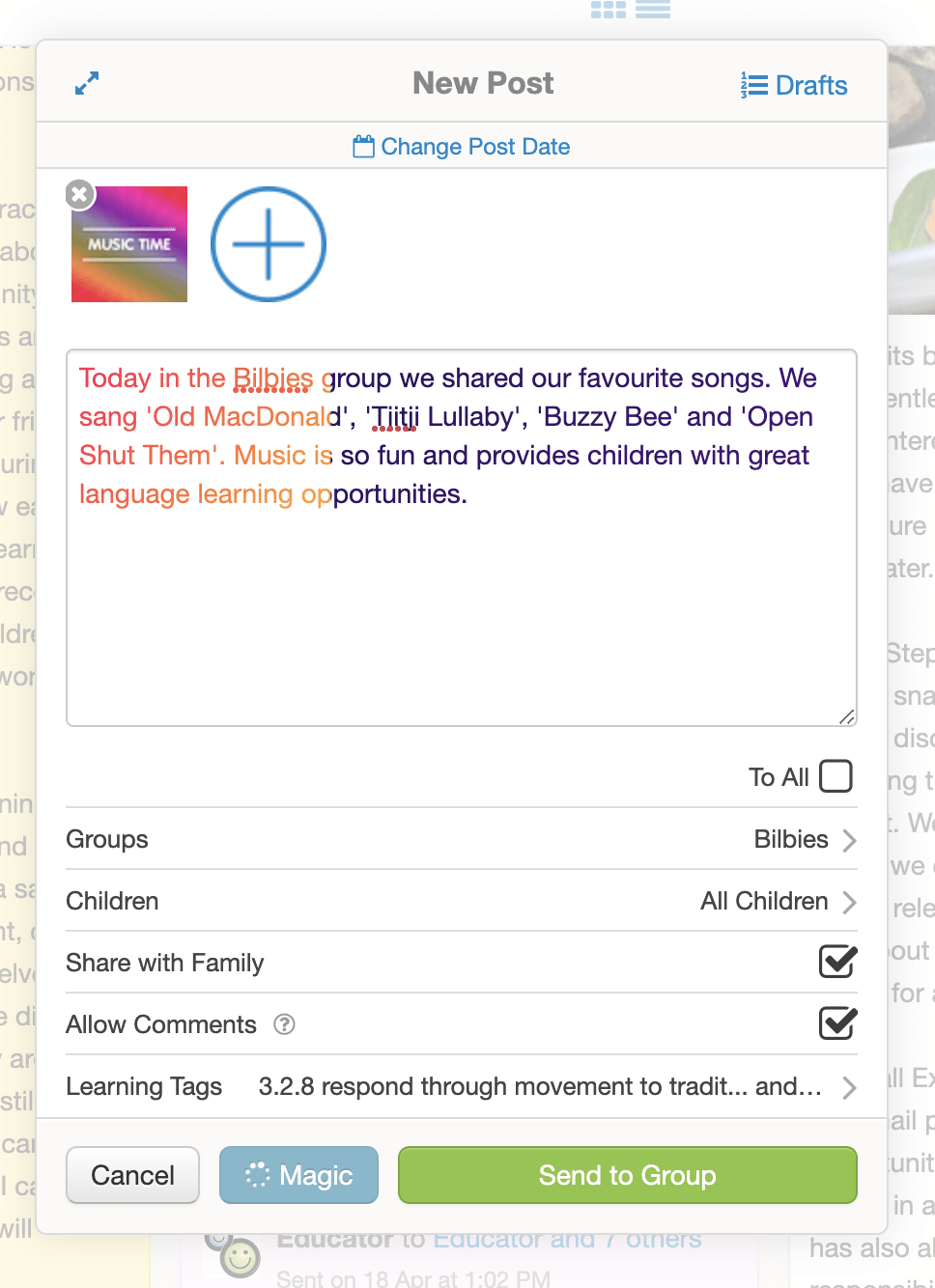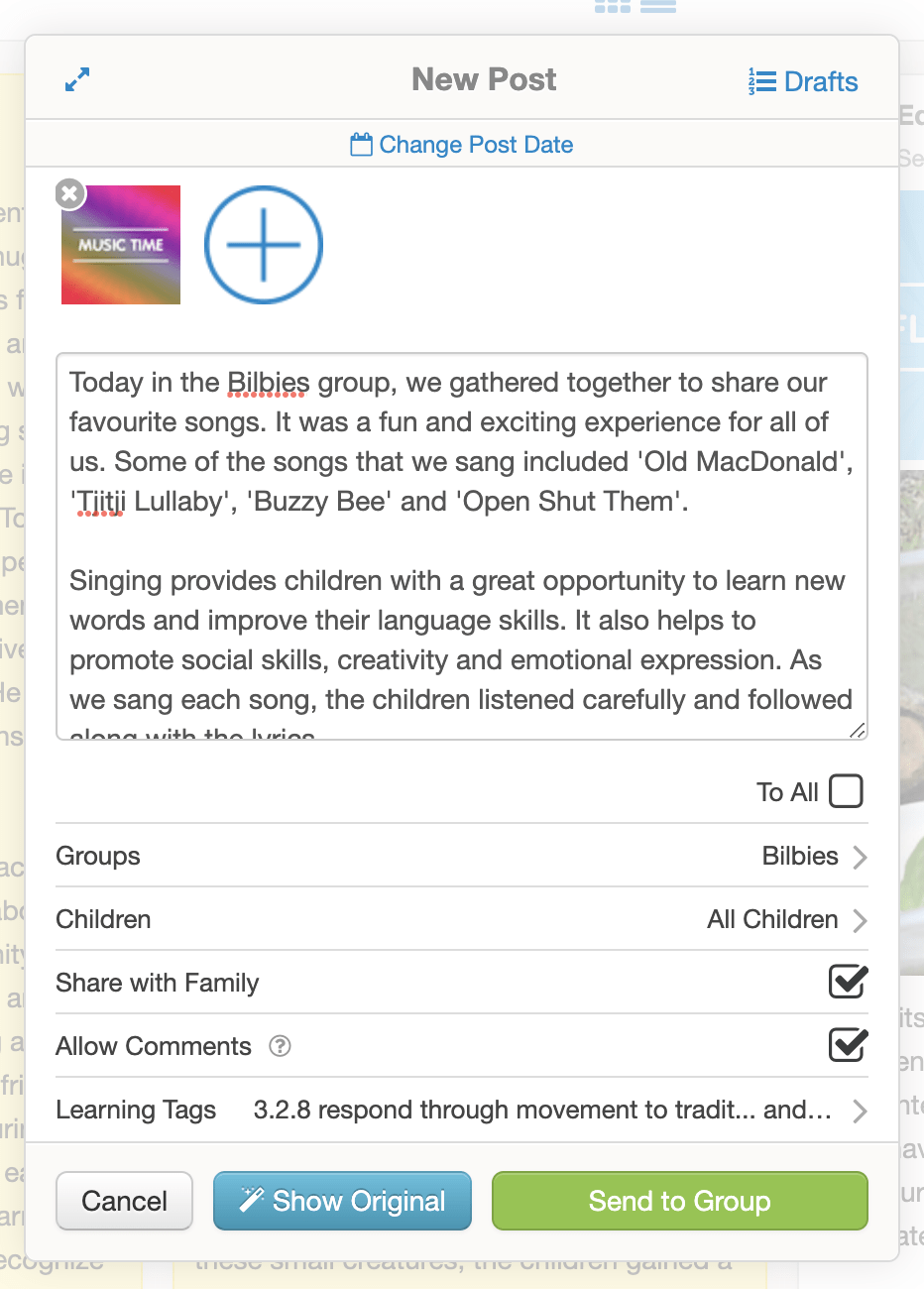In the ever-evolving landscape of early childhood education and care (ECEC), the integration of artificial intelligence (AI) has sparked significant debate, especially within the challenged sector of Early Childhood Education and Care in Australia. AI brings both advantages and drawbacks to pedagogy, quality documentation, ethics, and the array of challenges faced by a profession contending with staff shortages and potential over-reliance, all while striving for innovation.
Kinderloop’s Introduction of AI – MAGIC & The AI Dilemma
A little over six months ago, the team at Kinderloop introduced its own AI-driven tool called MAGIC. After much tweaking, MAGIC was trialed with a few select services to gather preliminary feedback. However, its reception has been a mixed bag. Some services expressed reluctance, fearing that AI might jeopardise the richness of relationships between educators and children, potentially compromising the uniqueness of each child’s experience. On the flip side, there are enthusiastic embracers who see AI as a time-saving boon in a profession where time is already a precious commodity.
While developing MAGIC, we likened AI to a volume control, where you can turn it on softly or have it on loud depending on your requirements and desired outcome. It is the end user that controls the outcome of what AI generates, adding an element of uncertainty to its use. AI, a perpetual learner from its users, is at its early stages in Kinderloop’s MAGIC, and ongoing improvements are in the works. We are not in a rush to push MAGIC out into the big worldwide community of Kinderloop just yet, as we are still debating its use and fine-tuning its functionalities.
We compiled a list of some of the pros and cons of using AI in ECEC
Pros:
- Data Analysis: AI, when used effectively, can provide valuable insights and recommendations for tailored learning experiences based on the data it processes.
- Time Efficiency: Assistance with time-consuming documentation allows educators to redirect their focus to meaningful interactions with children.
- Assistance for Educators Using a Second Language: AI supports educators who speak English as a second language in confidently conveying their stories to families through writing.
Cons:
- Loss of Human Connection: AI cannot replace the depth of human relationships and understanding of a child’s unique needs, potentially sacrificing the human touch for the sake of efficiency.
- Ethical Concerns: Transparency becomes a critical concern, as educators must ensure that AI-generated content is not presented as their own work, raising ethical questions about authenticity and accountability.
- Training Requirements: Users may need comprehensive training to use AI optimally, and there is a risk of over-reliance on AI by the user.
The Child’s Perspective and Family Involvement
In the midst of this debate, it’s crucial to consider the impact on the child and their family. While AI may offer efficiency, it must not compromise the quality of the child’s learning experience or hinder the vital connection between educators, children, and their families. Transparency is of utmost importance when using AI.
Final Word
As AI technology continues to make inroads into the ECEC sector, striking a delicate balance between leveraging its advantages and preserving the human touch is paramount. The profession must navigate these uncharted waters with a mindful consideration of ethical implications, ensuring that the introduction of AI enhances, rather than diminishes, the quality of education and care for our youngest learners. This calls for ongoing dialogue, research, and a commitment to integrating AI in a way that prioritises the holistic development and well-being of every child in ECEC.
What do you think of AI?
Do you have feedback to share with us about the use of AI? We would love to hear your thoughts!
Happy Kinderlooping!
Follow along on our social pages to ensure you don’t miss out on all of the Kinderloop tips & hints, and learn about our new features!
Facebook
Instagram




